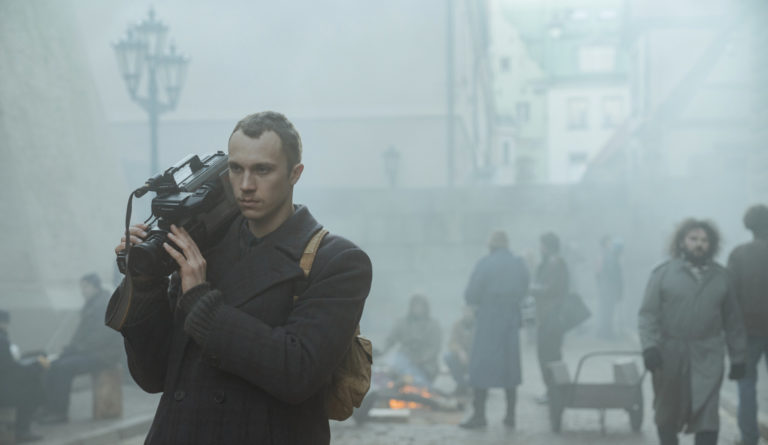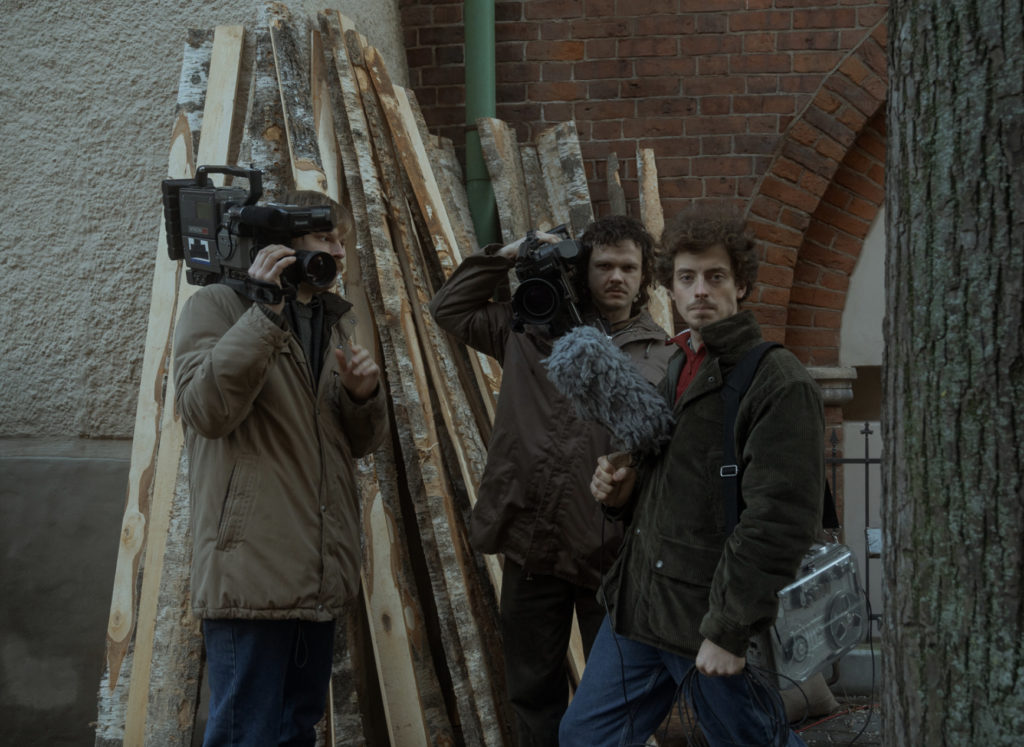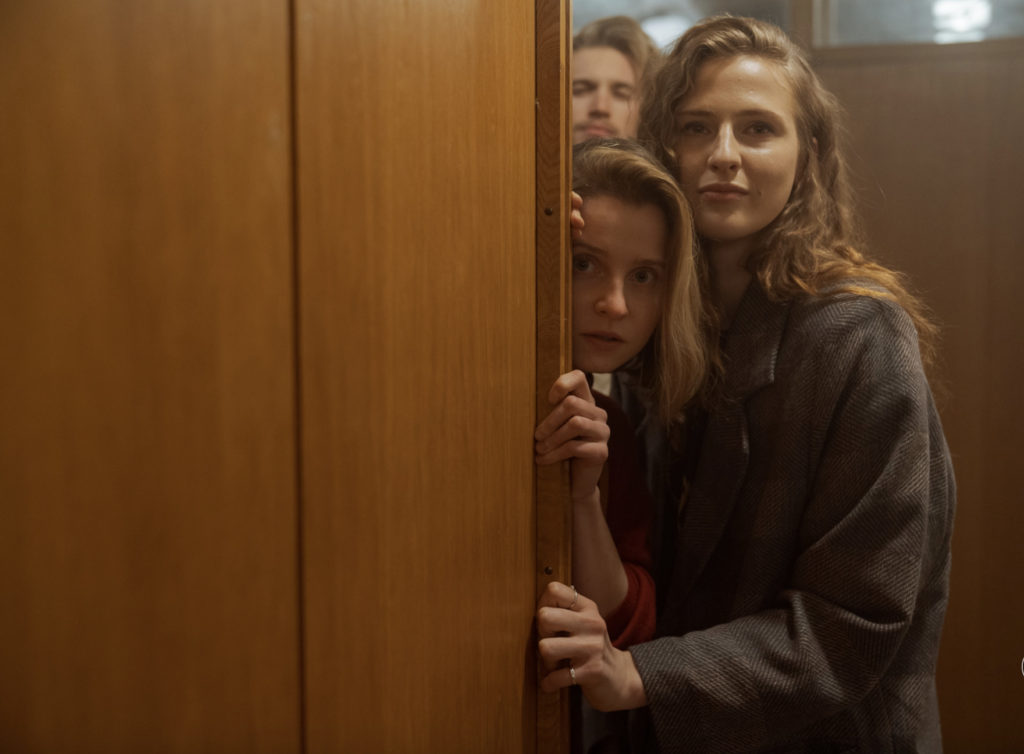
In the opening scene of ”January”, the final scene of Ingmar Bergman’s “Through a Glass Darkly” is shown on a small screen. In the Swedish auteur’s 1961 Oscar winning film a searching son asks his restrained father about love. The father firmly answers that love has many forms – it can be noble, foul, awkward and majestic. The camera moves backwards away from the film in the film and we see a young man with curly hair. Outside the window the city of Riga stands proudly. Suddenly a voice shouts that the USSR special units have attacked the press house. ”Let’s go. Grab your camera”. Punk music roars. It’s January 2, 1991, yet it echoes today.
The opening scene is not only one of the better ones this year, but it captures what is about to come – the borderland of love, cinema and oppression. As the son in Bergman’s film, our protagonist Jazis (Karlis Arnolds Avots) is a restless teenager searching for himself. He is a 19- year old, aspiring filmmaker who, in addition to Bergman, admires his gurus Andrei Tarkovsky, Werner Herzog and Jim Jarmusch and lives at home with his supportive parents (his father is a communist, his mother anti-USSR).
Occasionally he takes the risk to document USSR attempts to occupy and to stop the press in his small country, even though it means a bruised face and nosebleeds on his pillow. The mother wants him to start at the Film Academy, afraid that if war breaks out and he doesn’t attend university he’ll be conscripted into the Soviet army. At the Academy he falls in love with the rebellious and fierce student Anna (Alise Danovska) who shares his love for cinema. They bathe in the wintry sea, listen to the soundtrack of Jarmusch’s “Stranger Than Paradise” (1984) and smoke like chimneys.

But love ends abruptly, to Jazis’s annoyance and disappointment, when Anna gets a job with the documentary filmmaker Podniek, played by the real life filmmaker Juhan Ulfsak. Although their relationship is important, the film refuses to depict much of their first love heartache. Instead it focuses on the connection, the experience and the enjoyment of it all.
Nevertheless the film’s strongest core explores the struggle for individual freedom more than anything else, in a country that is fighting for its own freedom. In 1991, when the film took place, Latvia was in the midst of a turbulent time. The country’s press writes about its independence while the USSR aggressively wants the opposite, even if the huge country is already collapsing and the Cold War is about to end.
The historical moments that are depicted in the film were decisive not only for Latvia’s independence, but for all of Eastern Europe. The film is a sort of a “history repeats itself”-drama – although it was partly shot before February 24th this year. The relevance of its story is undeniable. Jazis, on the other hand, is perceived as rather apolitical, an antihero, but uses his camera and energy to channel his frustration. He represents the non-violent resistance of the people and experiences more of an awakening to grow up from confusing teenage years.

Veteran director Viesturs Kairiss’s fifth narrative feature film picks pieces from his own youth and gives homage to the filmmakers who have died documenting the history of Latvia. In the film, the turbulent time and Jazis’s anxious inner life are reflected in the jumpy camera movements that are shot with various cameras by Polish cinematographer Wojciech Staron. Latvian cinema clips and archive footage also appears – it enhances the authenticity. Beside these restless movements and other more restrained scenes (the most endearing with Jazis’s grandmother), there are images of fallen snow on trees, sea and houses. Contrasting the wintry, austere outdoor environments we see the glow of yellow warm light inside, settling like an atmospheric fog.
The result is extraordinary; it’s dreamy and melancholic yet intense and realistic with a feel of the French New Wave films.
In this smoky world where people drink to ease sorrow, listen to punk rock, and resist through the camera lens, the future remains uncertain. The narrative structure is loose, the set design beautiful, the score radical – it all captures the mood of the time.
Although the film is sadly timely, it somehow keeps a positive undertone – the struggle is far from over and indescribably hopeful. As the title “January” signals: it’s the beginning of something new.
Grade: A
Here’s the trailer of the film.

